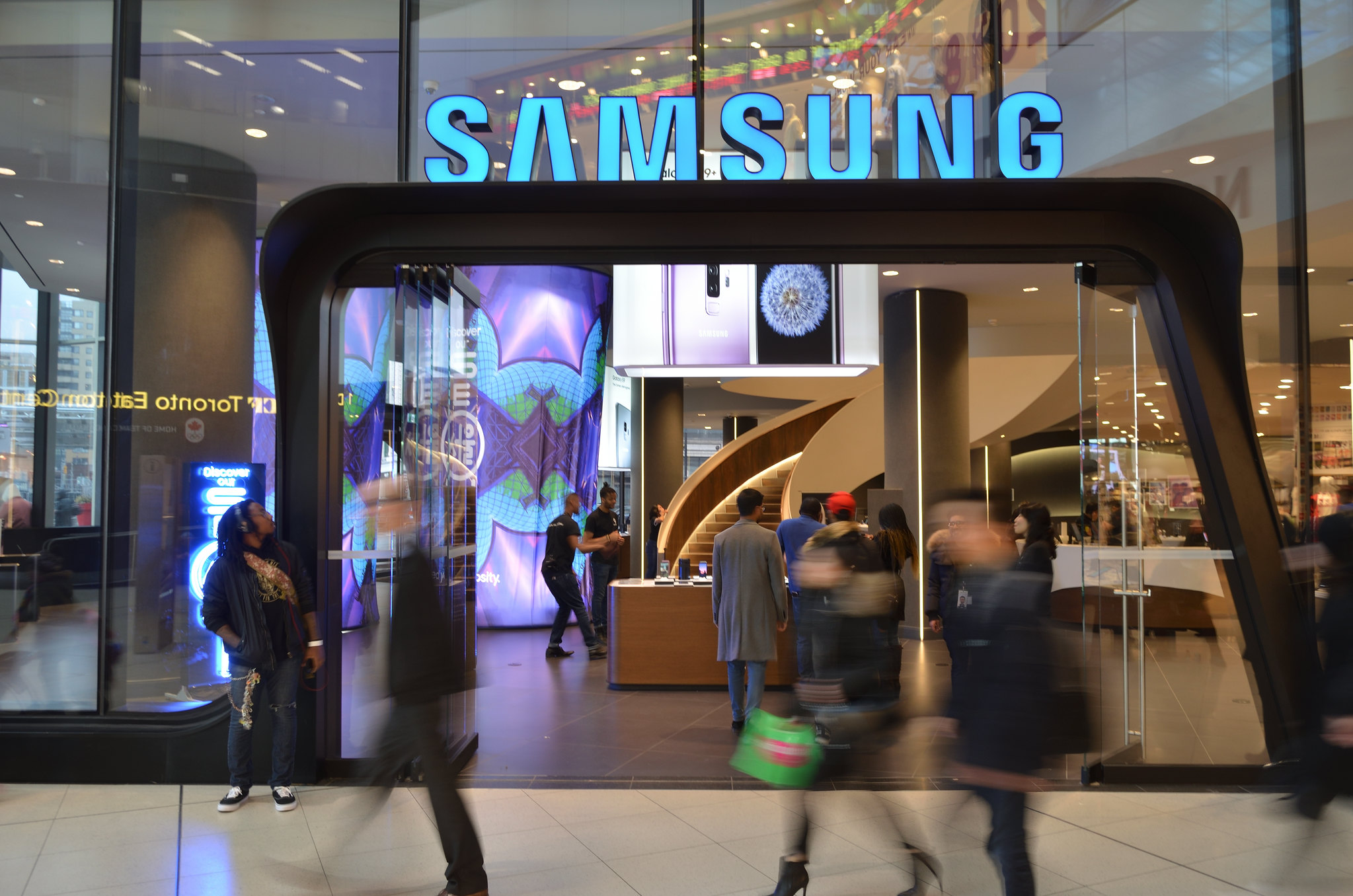 INFRA
INFRA
 INFRA
INFRA
 INFRA
INFRA
Samsung Electronics Co. Ltd. said today that its operating profit for the second quarter of this year fell by more than 50% from the same period a year ago, blaming the decline on rapidly falling prices of its flash memory chips.
The Korean firm reported an operating profit of 6.6 trillion won ($5.6 billion) in the quarter, which was down more than 55% from a year ago. Consolidated revenue came to 56.13 trillion won.
Samsung’s memory chips, used in smartphone handsets and enterprise servers, are the main component sold by its semiconductor business unit, which pulled in total revenue of 16.09 trillion won for the quarter, turning a profit of 3.4 trillion won. The numbers were actually slightly better than what the company had provided in its earnings guidance earlier this month, thanks to what it said was increased demand for its memory chips, despite the weak market conditions.
“The weakness and price declines in the memory chip market persisted as effects of inventory adjustments by major data center customers in the previous quarters continued, despite a limited recovery in demand,” Samsung said in a statement.
The company said that demand is “expected to grow” in the latter part of the year, but it’s not clear if that will help to turn its fortunes around, as it warned that it still sees “volatility in the overall industry due to increased external uncertainties.”
The quarter is the second in a row in which Samsung reported operating profits that fell by more than half from a year ago. During its first quarter, Samsung saw its profit collapse by around 60%.
Samsung’s big problem is that the semiconductor industry is being weighed down by a period of inventory adjustment that has led to a glut of supply. As a result, demand is low, leading to lower prices.
“In the past, the memory chip business has often saved Samsung’s profits, especially with the recent slowdown in the smartphone handset market,” said Holger Mueller, principal analyst and vice president of Constellation Research Inc. “But now the memory chip business is weighing Samsung down too. It can only hope that the full inventory is going to be consumed and that it will be able to weather the storm.”
Analysts say a recovery isn’t expected until 2020 at the earliest.
Samsung also has another cause for concern: The recent trade spat between Japan and South Korea showing no signs of abating. Tokyo recently took the step of restricting exports of certain high-tech materials such as fluorinated polyimide and high-purity hydrogen fluoride, which are key ingredients of Samsung’s computer chips and smartphone displays.
Samsung does at least have high inventory levels of these materials, so it’s unlikely to face problems in the short term. But analysts have warned that it could face difficulties in sourcing alternative suppliers should the spat go unresolved. Japan produces about 90% of the world’s fluorinated polyimide as well as 70% of the world’s high-purity hydrogen fluoride.
Samsung shares were falling just under a point shortly after the report, compared with a 0.6% fall in the overall market.
Support our mission to keep content open and free by engaging with theCUBE community. Join theCUBE’s Alumni Trust Network, where technology leaders connect, share intelligence and create opportunities.
Founded by tech visionaries John Furrier and Dave Vellante, SiliconANGLE Media has built a dynamic ecosystem of industry-leading digital media brands that reach 15+ million elite tech professionals. Our new proprietary theCUBE AI Video Cloud is breaking ground in audience interaction, leveraging theCUBEai.com neural network to help technology companies make data-driven decisions and stay at the forefront of industry conversations.